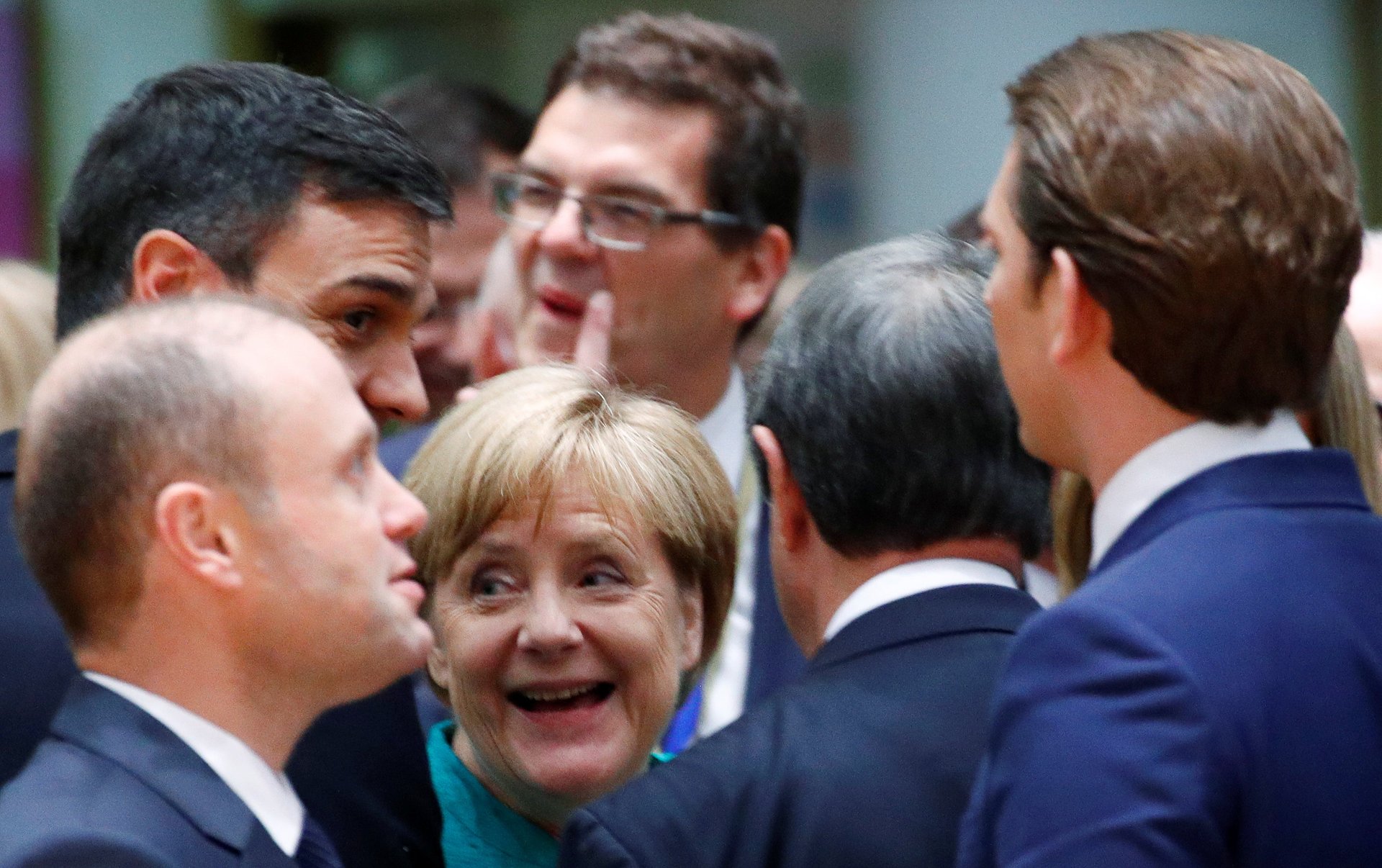While migration will dominate the EU summit, there are more topics on the table
European Union leaders have hunkered down for an intense two-day summit in Brussels. You’d be forgiven in thinking the event is entirely about how to handle the refugee crisis in Europe. After all, German chancellor Angela Merkel said on Thursday morning that the fate of the EU hung on solving the question of what to do with migrants.


European Union leaders have hunkered down for an intense two-day summit in Brussels. You’d be forgiven in thinking the event is entirely about how to handle the refugee crisis in Europe. After all, German chancellor Angela Merkel said on Thursday morning that the fate of the EU hung on solving the question of what to do with migrants.
But while migration will dominate talks, there’s a plethora of topics on the agenda, from trade to financial reform. Here is everything you need to know.
Butting heads on migration policy
Even though the number of refugees arriving in Europe has dropped significantly this year, migration is a political cudgel at the summit, as battle lines are drawn between populist governments and their more liberal counterparts.
Merkel is pushing hard to get other EU leaders to agree on ways to revise the current laws. She wants all member states to share the burden of migrant arrivals more fairly—as well as speed up deportations of rejected ones. But she’s up against Europe’s hardliners, especially populist Hungarian prime minister Viktor Orbán, who told Euronews on arrival in Brussels today that he wants “no more migrants in” and those that are in “brought back.”
In Orbán’s corner, there’s Austria’s anti-immigration chancellor Sebastian Kurz, Poland, Hungary, Czech Republic, and Slovakia. Italy’s new government has already started rejecting migrant ships and prime minister Giuseppe Conte said today that he may veto conclusions on migration reached by the other leaders.
Keeping migrants out of the EU
While the leaders aren’t expected agree to revise the current rules on migrant registration, they are all expected to be on board with increasing the size of Frontex to guard EU borders, and setting up migrant processing centers in Africa.
Merkel looks for allies
Merkel is also in trouble at home—she’s facing rebellion from her Christian Social Union sister party led by belligerent Bavarian Horst Seehofer. He is demanding that Merkel allows German police to turn migrants away at the country’s border if they have already registered in another EU land. He also issued an ultimatum, saying that she had to get some kind of agreement on migrant registrations hammered out with other countries, or he would exercise his ministerial power.
Merkel has signaled that she could fire him, but that would mean the collapse of her government at around the 100-day mark.
Macron wants a big joint bank account
French president Emmanuel Macron has been pushing Merkel to agree to reforms that will bind EU countries closer together economically. She agreed in principle at their meeting earlier this month to create a euro-zone budget out of member state’s tax revenues, and can expect his backing on her migration-reform agenda at the summit.
Everyone wants to hit back at Donald Trump’s tariffs
It appears everybody is on the same side for this particular issue. Leaders are gearing up to approve bringing a lawsuit against the US to the World Trade Organization and retaliatory measures against the US for imposing punitive tariffs on EU steel and aluminum.
Brexit takes a back seat
Britain naturally wants to talk about Brexit, for others it’s not an essential topic. Arriving in Brussels, prime minister Theresa May said “very good progress” had been made on the UK’s exit agreement, but her soon-to-be exes in the bloc could use some more clarity. Irish premier Leo Varadkar said Dublin wasn’t preparing for a hard border after Brexit, but that he was waiting on a white paper from the UK, noting: “I think it would have been helpful to have that white paper two years ago. You would have thought they’d have had that before people voted.”